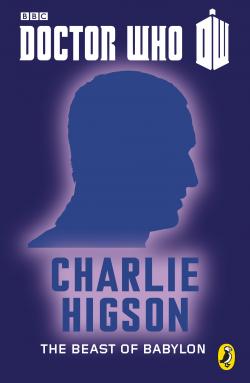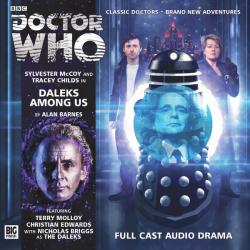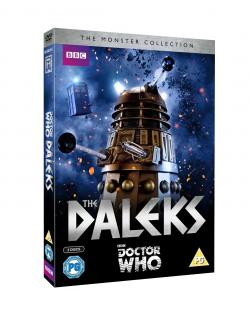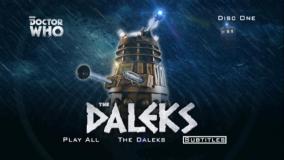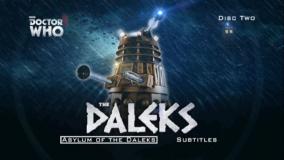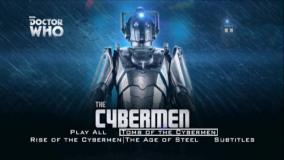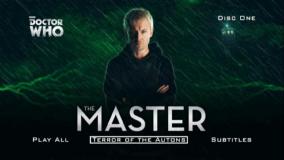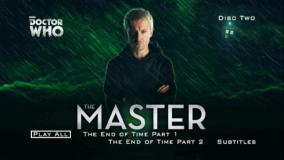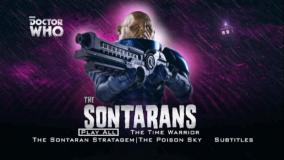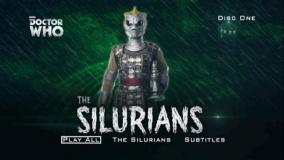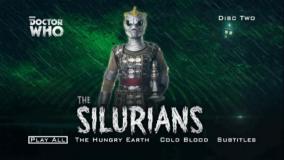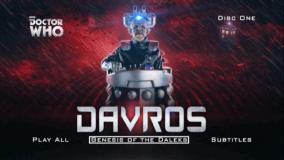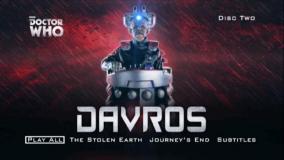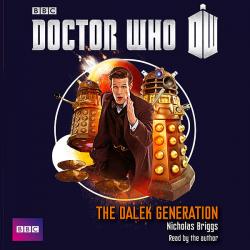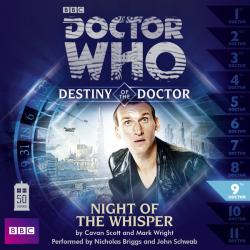1963: Fanfare for the Common Men (Big Finish)
Friday, 27 September 2013 - Reviewed by
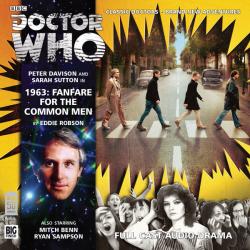
Fanfare for the Common Men
Produced by Big Finish
Written by Eddie Robson
Directed by Barnaby Edwards
Released: September 2013
The times, they aren’t a-changing. Whereas for the majority, this year’s plentiful Doctor Who 50th Anniversary audio outings have held the central purpose of expanding the series’ narrative universe rather than engaging in regular bouts of nostalgia, Big Finish’s 1963 trilogy is taking a different approach during the final stages of the countdown. Listeners will find themselves grounded in the inherently familiar (well, at least if they were around to witness the broadcast of An Unearthly Child) this time around, as the production team explore some of the defining elements of the year in which the show premiered.
Fanfare for the Common Men investigates the impact of arguably the most influential group of musical artists in the entirety of the ‘60s. Though for obvious reasons a physical appearance from members of the Fab Four themselves is out of the question, their presence - or rather their absence, such is the premise of the piece - is felt throughout nonetheless. It transpires that as the Fifth Doctor and Nyssa arrive at what should be a Beatles concert in November 1963, an altogether different band have taken their place in history for reasons initially unbeknownst to the world at large.
As a premise, Fanfare’s set-up works magnificently, its opening chapter at the aforementioned gig a startlingly impressive rendition of ‘60s fandom- though this reviewer can’t claim to have been present in the year itself to verify the release’s complete accuracy! If the remainder of Eddie Robson’s storyline succeeded in fulfilling the high expectations the listener will instate after these great initial moments, then as a whole the product could be dubbed an inspired venture. In brutally ironic fashion, however, the crucial setting of the piece itself works notably to its detriment.
One particular trait of the Big Finish range which has struck this reviewer over the past nine months is the impact which a supporting cast ensemble can have on a singular release’s quality. Just as easily as guest stars such as Jo Woodcock and Terry Molloy have elevated Starlight Robbery and Daleks Among Us respectively to the metaphorical Hall of Fame, so too at the same time have the underwhelming guest stars on Destiny of the Doctor releases such as Enemy Aliens served to diminish their chances of entering those same upper echelons of the range. Here, newcomers Mitch Benn, Andrew Knott and David Dobson are each either regularly afforded unoriginal or uninspiring dialogue or simply don’t excel in their performance as much as their predecessors have done in the past.
All is not for nought in this department, though, with the central cast still providing consistent portrayals. Peter Davison remains on top form as his incarnation of the Doctor, this particular version of the character appearing no older than in his last full story in 1984. Sarah Sutton’s Nyssa doesn’t rank among this reviewer’s favourite classic companions, but Sutton puts plenty of enthusiasm and passion into her role here regardless. Without noteworthy performances such as these, the piece would offer far less value in terms of its cast ensemble, a crying shame given the (relative) youth of this new series of adventures.
Of further negative impact is the lack of ambition to be found in the overarching narrative. Although Mark Gatiss’ Victory of the Daleks was met with a mixed critical reception, at the very least Gatiss could be commended for attempting a new spin on the well-tread World War Two (World War Who?) setting. On the other hand, Robson’s plot struggles to innovate, the execution of its premise infuriatingly similar to the manner in which other episodes based around the consequences of time travel and time manipulation have played out. While not a wholly destructive flaw, this failed attempt to fully utilise the period setting of 1963 rather worryingly contradicts the purpose of a range based primarily around that specific period.
Had Fanfare occupied a role within a wider series arc, constrained in some form by additional plot elements beyond its writer’s control (as was the case with Persuasion earlier this year), then its shortcomings could perhaps have been forgiven to an extent. As it is, however, beyond the final release in the 1963 saga likely tying into the 50th Anniversary audio special The Light at the End, there’s virtually no foreseeable connections to be found between this, The Space Race or The Assassination Games. Even a few further homages to the year itself, whether more melancholic (e.g. the JFK assassination) or otherwise wouldn’t have gone amiss, yet surprisingly little attention seems to have been given in this respect either.
Inevitably, then, the standalone nature of the piece enables its caveats to be highlighted fully, and in this case such caveats are as clear as a Yellow Submarine. Fanfare for the Common Men has its moments, but those are limited by its weak supporting cast and mediocre narrative. A benefit to this is of course that subsequent 1963 releases can (ideally) only get better, but it’s troubling when that is the single greatest compliment this drama can attain. In the words of the Fab Four themselves, unless a potential listener knows him or herself to be a Beatles fanatic, then in the case of this sub-par initial outing, they can simply Let It Be.
